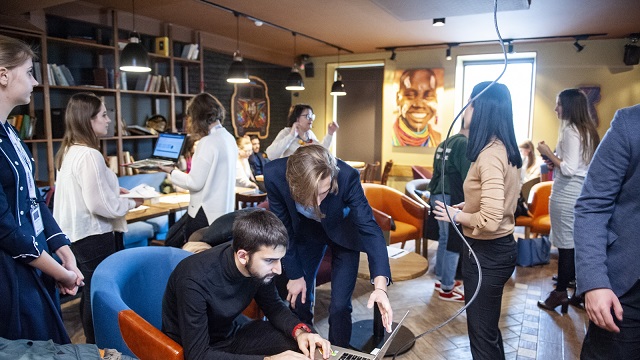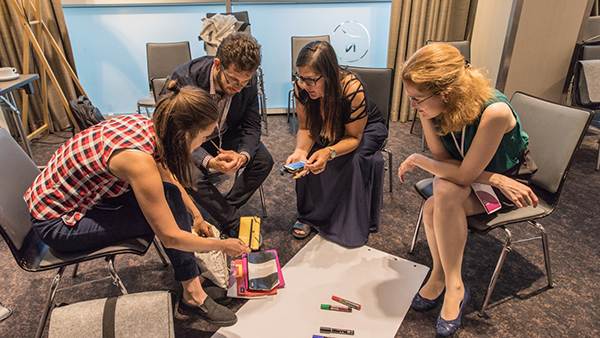EU NEIGHBOURS . On 2 February the Eastern Partnership Civil Society Facility launched its Adapt-an-App Eastern Partnership Sprint – a four-week intense online development sprint financed by the EU. Six teams of civil society representatives and IT experts from Azerbaijan, Armenia, Belarus, Moldova and Ukraine will work on the replication of six digital solutions developed during the project’s Hackathons in 2017-2020. All solutions will be online in March.
The teams from Azerbaijan (Kekalove Adaptive Social Enterprise) and Armenia (DiverCity) will both work on interactive maps allowing citizens to assess the accessibility of public spaces in Baku and in Armenian cities. The apps will be based on the Ukrainian solution Provodnik.Online – the winner of Hackathon-2019.
The team of the Centre of Urban Initiatives from Belarus will develop a participatory platform enabling public participation in the design and transformation of public spaces in Mogilev, using the code of the project’s first 2017 Hackathon winner – Serebranka.BY.
The Openmoney.MD project’s team from Moldova will launch a web-module for comparing the sale prices of individual items through public tenders. This solution will replicate the Market Research Tool from Ukraine.
A team from Ukraine led by two civic activists will develop an online module enabling civil society organisations to raise donations directly on their websites, based on the Doika donation module from Belarus, the winner of Hackathon–2018. Besides, a group of volunteers from Ukraine will use the SaveUs platform from Belarus (the winner of the Hackathon–2020, platform currently under development) for developing a crowdfunding platform for Ukrainian volunteers helping stray animals, animal shelters and animal right defenders.
The Eastern Partnership Civil Society Facility promotes the role of civil society actors through innovation based on e-learning, the development of digital solutions to improve public sector accountability, and cooperation and networking among civil societies and governments through the region.
Photo: European Union

























































